HPE ProLiant DL380 Gen11 review: A supremely versatile rack server
An ideal partner for SMBs and enterprises with diverse and demanding workloads
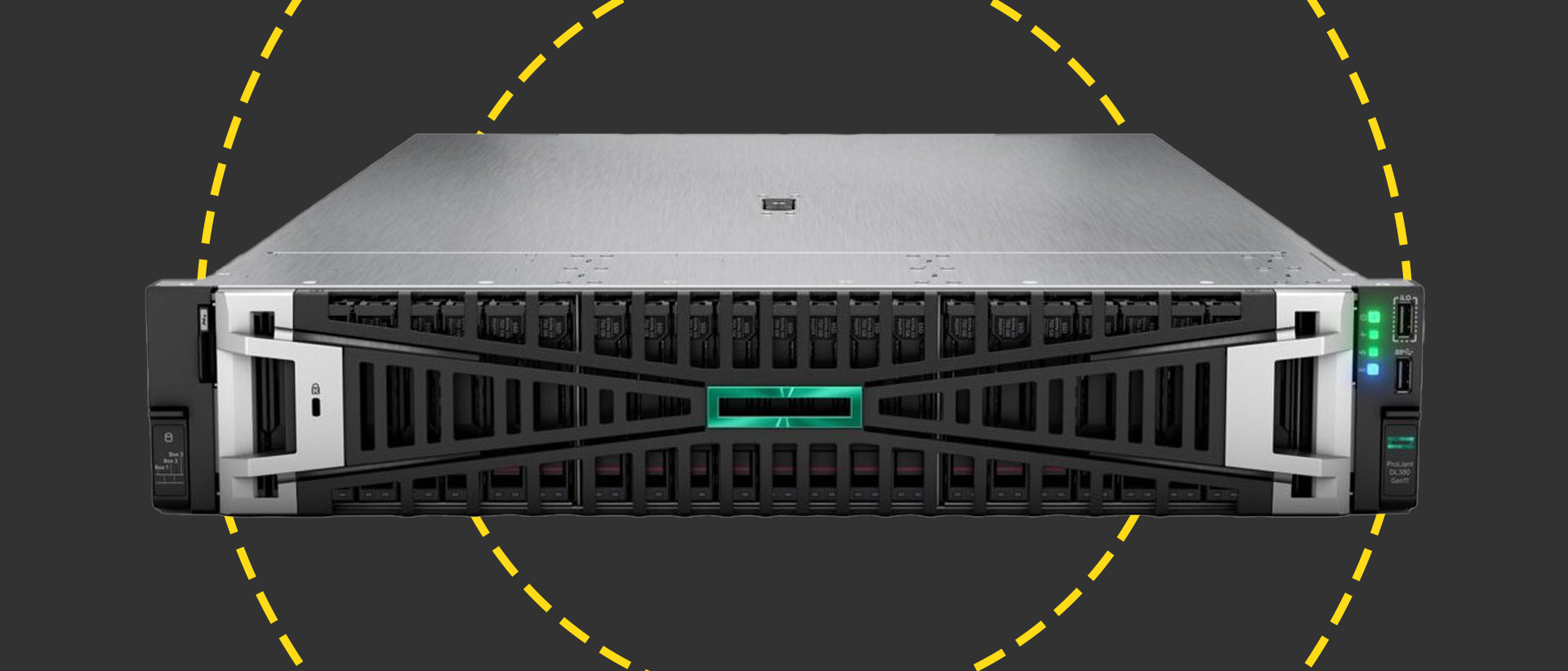
-
+
Highly flexible design
-
+
Good value; Gen4/5 Xeon Scalable CPUs
-
+
Big storage capacity
-
+
Remote management tools
-
-
Nothing of note

READ MORE
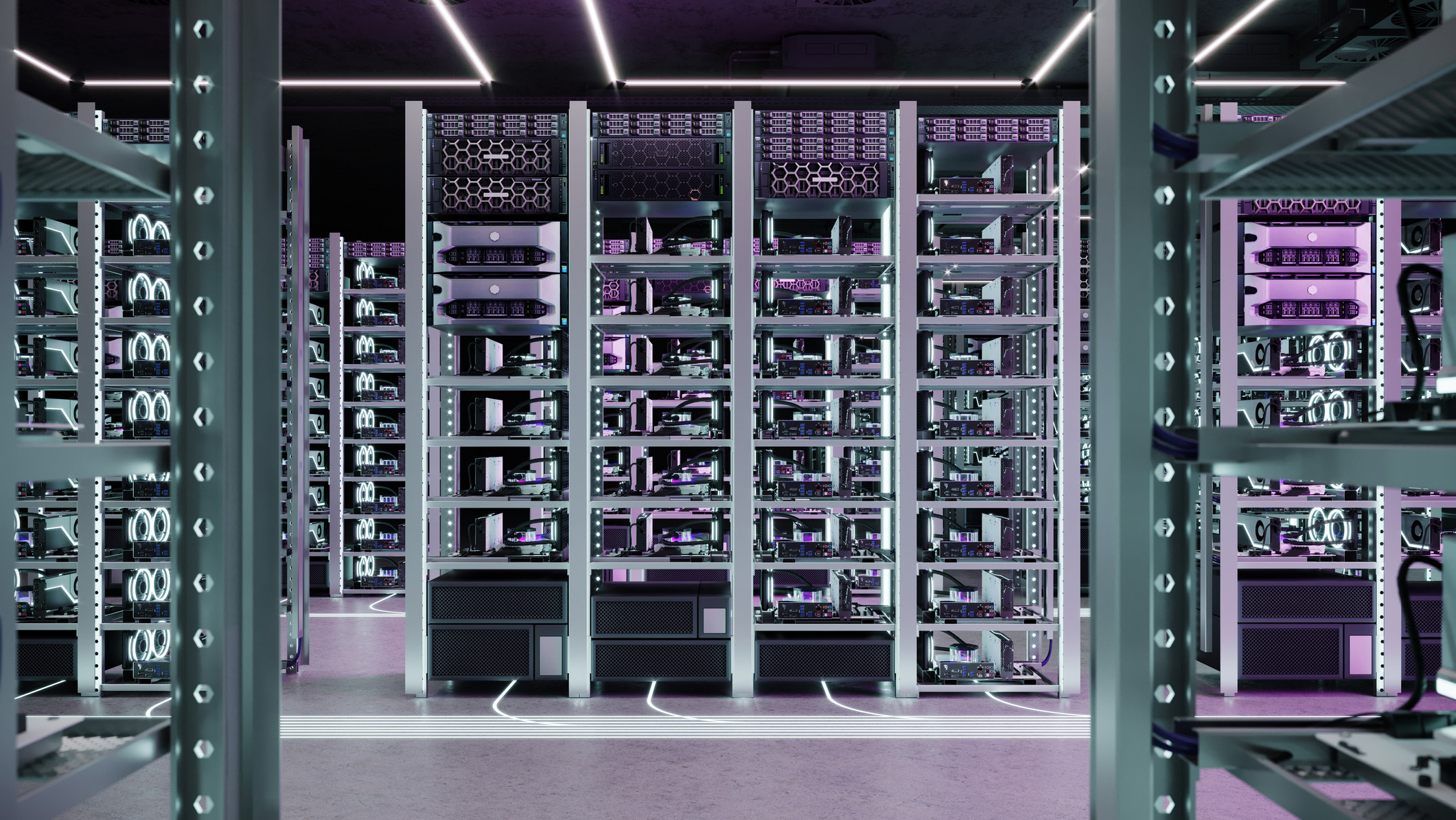
The ProLiant DL380 has always been HPE's flagship rack server with its rich set of hardware features that allows it to handle just about any workload you care to name. The latest Gen11 model on review here has a lot to live up to and doesn't disappoint as it delivers plenty of new and welcome features
It seems unreal that we exclusively reviewed the Gen10 version over five years ago but rest assured, the long-awaited DL380 Gen11 is a significant update. Naturally, support for Intel's Gen4 Xeon Scalable CPUs heads up HPE's hardware menu and the server is ready and waiting for Intel's Gen5 CPU family refresh.
System memory is more than doubled to 8TB using HPE's DDR5 SmartMemory and expansion potential sees a big boost with room for up to eight PCIe Gen5 slots and two OCP 3 mezzanine cards. The storage layout doesn't see any major updates but none are needed as capacity has always been impressive, although the DL380 Gen11 adds support for SAS4 and EDSFF NVMe storage devices.
HPE ProLiant DL380 Gen11 review: Storage features
Storage choices are outstanding as the DL380 Gen11 supports a remarkable range of interfaces, devices, and form factors. At the front, you'll find HPE's standard triple drive bay layout allowing up to 12 LFF, 24 SFF, or 36 EDSFF drives to be presented.
At the cost of some expansion slots, you can add up to three dual-drive SSF bays at the rear. You'll need to check HPE's thermal restrictions as a maximum of 30 SFF drives are supported, but a 4-LFF or 8-SFF midplane cage can be installed which sits over the CPUs, replaces the air shroud and requires the CPUs to be fitted with 1U performance heatsinks.
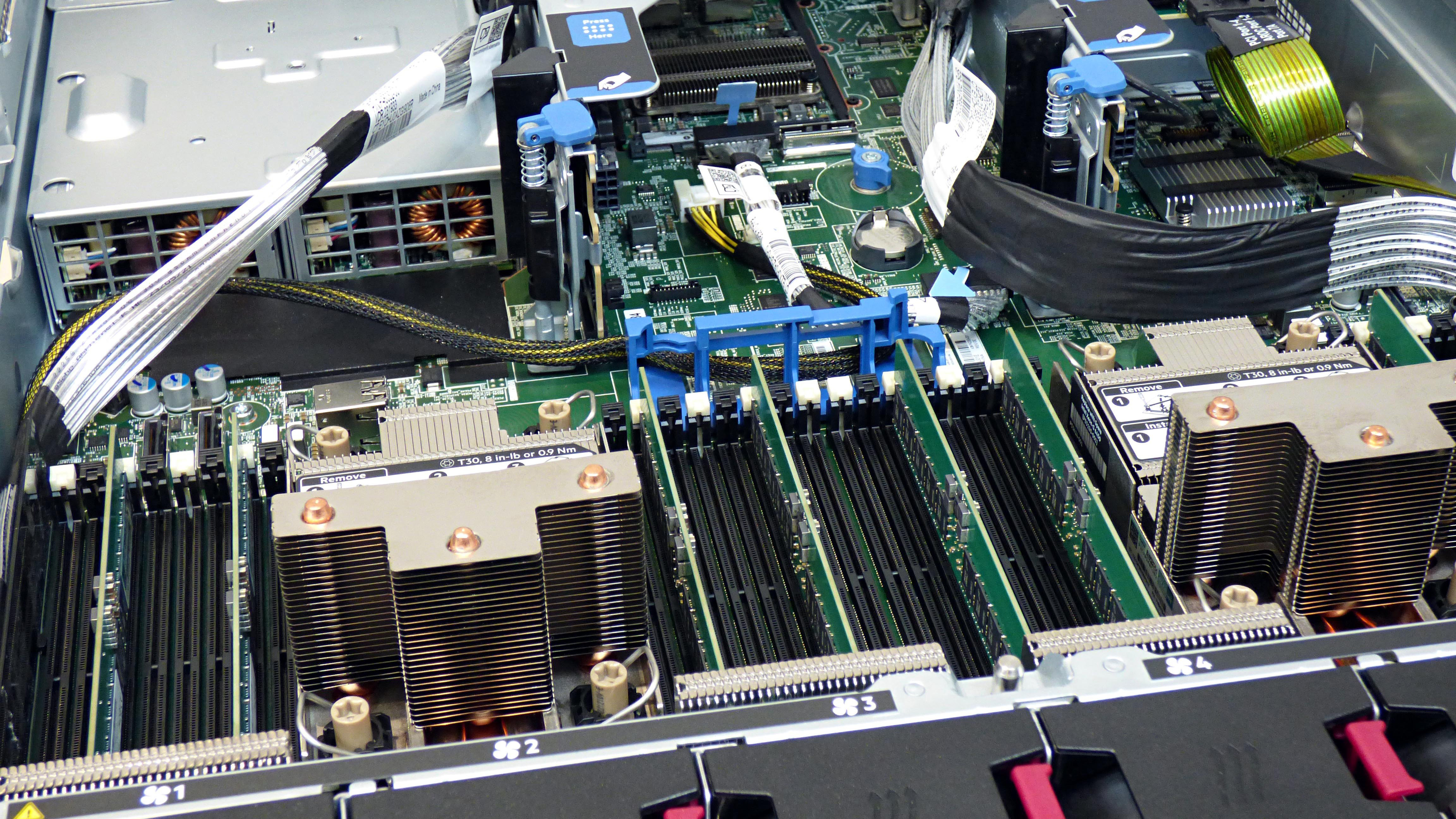
Unlike HPE's AMD-powered servers, all its Intel-based models have RAID embedded on the motherboard. This comes in the shape of Intel's VROC (Virtual RAID on CPU) controller which supports up to fourteen SATA drives or eight direct-attached NVMe devices and offers software-managed RAID0, 1, 10, and 5 arrays.
HPE's TriMode backplanes deliver SAS4 plus NVMe support and RAID card options are extensive – our system was supplied with HPE's MR416i-p Gen11 PCIe controller complete with a battery backup pack. There's also a dedicated space above the PSU bays for HPE's NS204i-u Gen11 boot device which presents two hot-plug M.2 NVMe SSD slots at the rear and provides mirrored redundant storage for running an OS or hypervisor.
HPE ProLiant DL380 Gen11 review: Build and expansion
The server's chassis is very solidly built and removing the lid reveals a tidy interior with the two CPU sockets positioned towards the front of the motherboard and flanked on each side by banks of eight DIMM slots. Note that the chassis is thermally rated to support every Gen4 CPU model up to the 60-core Platinum 8490H.
Value looks good as HPE's entry-level preconfigured model P60636-421 costs around £3,300. This includes a single 20-core 2GHz Silver 4416+ CPU, 32GB of DDR5 SmartMemory, eight empty SFF drive bays, an MR408i-o OCP RAID controller, and a single 1,000W hot-plug PSU.
RELATED RESOURCE
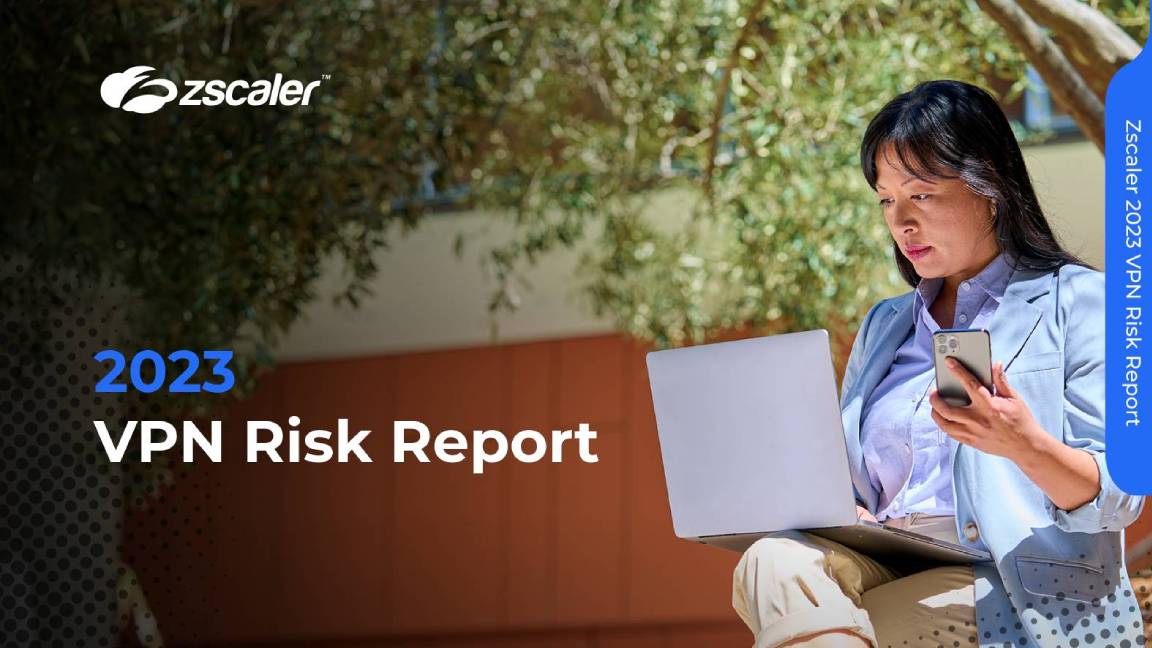
Get insight into the complex world of VPN management and learn about its vulnerabilities
DOWNLOAD NOW
Our CTO (configure to order) system offered much more as it was supplied with dual 32-core 2.1GHz Gold 6430 CPUs, 256GB of DDR5, one 8-bay SFF cage, and two 800W PSUs. As we had relatively high-spec CPUs, our system also had six high-performance hot-plug cooling fan modules.
Our system came with the primary and secondary riser cages each offering three PCIe x16 Gen5 slots and you can add a tertiary riser above the PSU bay with two more Gen5 slots. The OCP 3 slots are located under the primary and secondary riser cages and along with 'o' designated RAID cards, HPE offers quad Gigabit, dual 10GbE, dual and quad 10/25GbE, and dual 100GbE OCP 3 cards.
HPE ProLiant DL380 Gen11 review: Server management
Remote management services are in abundance and get off to a flying start with HPE's iLO6 embedded controller which offers a wealth of remote management and monitoring services and introduces HPE's trusted security features. Building on iLO 5 features such as Secure Start and 'silicon root of trust' firmware fingerprinting, the iLO 6 SPDM (Security Protocol and Data Module) authenticates all hardware components plus optional PCIe expansion cards and alerts you to 'hostile' devices.
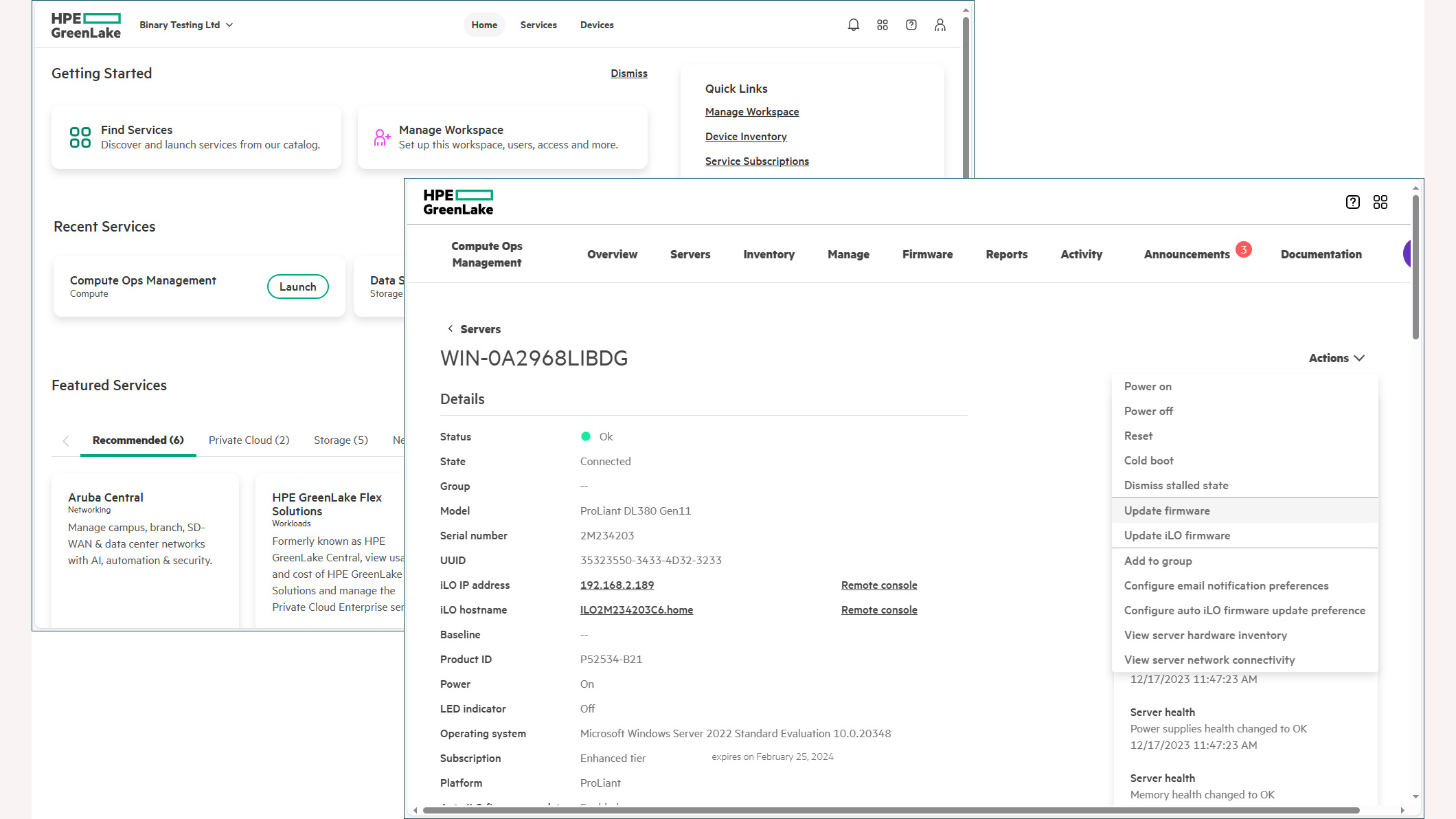
The iLO6 links up with HPE's OneView app which provides a central web console for monitoring and managing all HPE systems, hypervisors, storage arrays, pools, and switches. Next up is HPE's iLO Amplifier Pack which offers discovery, inventory, and compliance reporting for up to 10,000 Gen8, 9, 10, and 11 servers.
Part of HPE's GreenLake cloud services, Compute Ops Management (COM) presents a portal for viewing your entire infrastructure, managing server deployments, and automating system lifecycle compliance policies. Available as a 90-day trial, COM sees a freshly designed portal and a new feature is the facility to add local OneView instances to its interface so they can be remotely accessed – useful if you have older Gen8 and Gen9 servers as these can't be directly managed from COM.
We added the DL380 Gen11 to our COM account by entering its serial number and product ID, providing tags for easy identification, and placing it in a group. The COM home page provides an overview of all systems showing their health and you can drill down and see all hardware components, RAID configurations, the installed OS, and more. It provides remote console access too, and within minutes of adding our server, COM advised us of its lack of baseline service pack and firmware compliance and offered to remotely upgrade it for us.
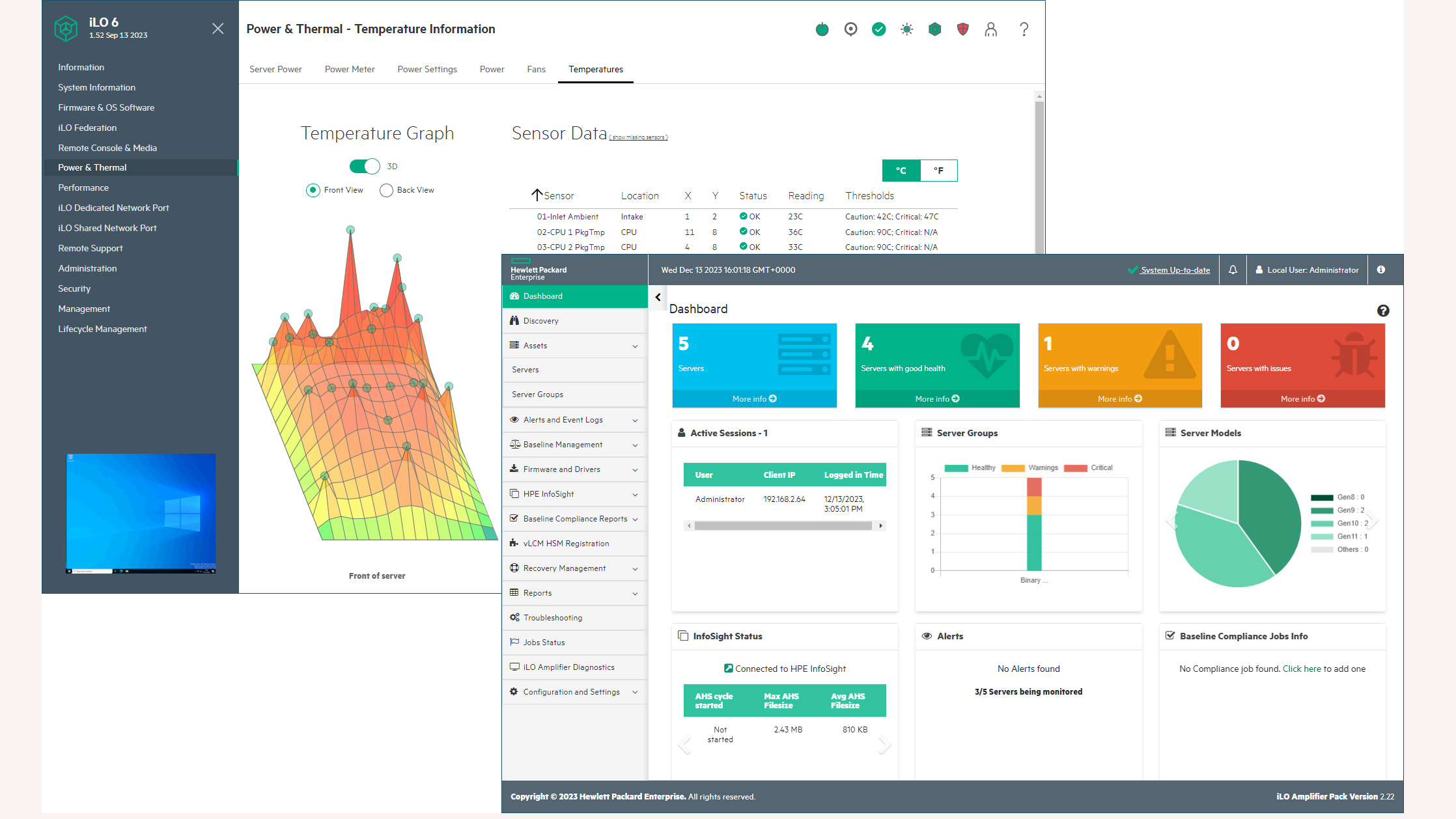
HPE ProLiant DL380 Gen11 review: Is it worth it?
There are good reasons why the ProLiant DL380 is one of HPE's most popular servers as it offers an incredible expansion potential and a wealth of storage services at a good price. The DL380 Gen11 delivers plenty of new features making it ideal for a wide range of demanding enterprise workloads and HPE's remote management features are simply the best.
HPE ProLiant DL380 Gen11 specifications
| Chassis | 2U rack |
| CPU | 2 x 32-core 2.1GHz Xeon Scalable Gold 6430 |
| Memory | 256GB DDR5 SmartMemory (max 8TB) |
| Storage bays | 8 x hot-swap SFF (max 30) |
| RAID | HPE MR416i-p Gen11 PCIe |
| Storage included | 2 x 480GB SFF SATA SSDs |
| Network | 2 x 10GbE RJ45 OCP 3 |
| Expansion | 6 x PCIe Gen 5 (max 8), 2 x OCP 3 |
| Power | 2 x 800W Platinum hot-plug PSUs |
| Management | HPE iLO6, OneView, iLO Amplifier, GreenLake COM |
| Warranty | 3Yr On-Site NBD |
Get the ITPro daily newsletter
Sign up today and you will receive a free copy of our Future Focus 2025 report - the leading guidance on AI, cybersecurity and other IT challenges as per 700+ senior executives
Dave is an IT consultant and freelance journalist specialising in hands-on reviews of computer networking products covering all market sectors from small businesses to enterprises. Founder of Binary Testing Ltd – the UK’s premier independent network testing laboratory - Dave has over 45 years of experience in the IT industry.
Dave has produced many thousands of in-depth business networking product reviews from his lab which have been reproduced globally. Writing for ITPro and its sister title, PC Pro, he covers all areas of business IT infrastructure, including servers, storage, network security, data protection, cloud, infrastructure and services.
-
 Cleo attack victim list grows as Hertz confirms customer data stolen – and security experts say it won't be the last
Cleo attack victim list grows as Hertz confirms customer data stolen – and security experts say it won't be the lastNews Hertz has confirmed it suffered a data breach as a result of the Cleo zero-day vulnerability in late 2024, with the car rental giant warning that customer data was stolen.
By Ross Kelly Published
-
 Women show more team spirit when it comes to cybersecurity, yet they're still missing out on opportunities
Women show more team spirit when it comes to cybersecurity, yet they're still missing out on opportunitiesNews While they're more likely to believe that responsibility should be shared, women are less likely to get the necessary training
By Emma Woollacott Published
-
 OpenAI wants developers using its new GPT-4.1 models – but how do they compare to Claude and Gemini on coding tasks?
OpenAI wants developers using its new GPT-4.1 models – but how do they compare to Claude and Gemini on coding tasks?News OpenAI says its GPT-4.1 model family offers sizable improvements for coding, but tests show competitors still outperform it in key areas.
By Ross Kelly Published